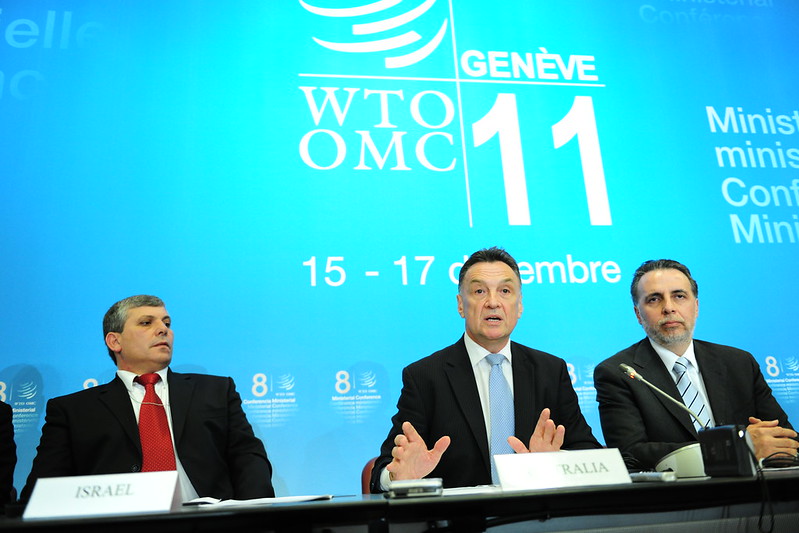In 1846, after a long battle, Britain’s Corn Laws were repealed exposing the market to international competition and reducing the price of bread which dominated the staple diet of ordinary Britons of the day. This was a great victory for the British working class over the landed elite.
It also marked a seminal moment in the Industrial Revolution. Shifting labour and resources from agriculture to manufacturing is only possible if there is enough surplus food to feed industrial workers. The Corn Laws were a barrier to this and its removal allowed Britain’s march to modernity to increase unhindered.
Fast forward to today and trade liberalisation is seen as a requisite for economic development as set out by the Washington Consensus. Indeed the EU actively promotes less developed countries (LDCs) to reduce barriers to increase export revenues and improve living standards. This has been criticised by the likes of Noam Chomsky and Naomi Klein for facilitating the exploitation of poor countries by large multinationals. It is my opinion that the truth of this key policy area is significantly more nuanced than either of these.
The EU’s thinking is in line with most economists and indeed few could argue that free trade does not boast GDP. To understand why one needs to look at the theory.
Neoclassical trade theory focuses on the idea of comparative advantage and specialisation. If every country specialises in a particular good or commodity they hold a comparative advantage in, then resources will be maximised and the standard of living along with it. This is unquestionably true, however it is often overlooked that comparative advantage maximises output based on current resources and level of development.
Trade liberalisation fosters efficiency by increasing competition but unfortunately this competition can also kill fledgling industries before they have grown significant enough to survive against more advanced foreign competition. This argument for protectionism is known as the Infant Industry Argument. Looking at the British example we can understand how it works in reality.
Ha-Joon Chang in his book Kicking Away the Ladder: Development Strategy in Historical Perspective (London 2002) makes a compelling case that without protectionism, the British industry would never have survived in the face of cheaper international competition. The Industrial Revolution had its origins in cotton, an industry in which India had a significant advantage over Britain until the late 18th Century due to its abundance of cheap labour. Without barriers to trade, Indian imports would have killed the Industrial Revolution before it began.
With access to cheap imports restricted and high domestic labour costs, Britain was forced to turn to alternative sources of production, in particular coal, thus starting the process of industrialisation. The Theory of Comparative Advantage would dictate that Britain should have allowed such imports as it was the best way of maximising contemporary resources, but history tells us otherwise. British industry started to grow at unprecedented rates until they were in a position that trade liberalisation became beneficial for the theoretical reasons outlined above.
Both free trade and protectionism have their advantages. In policy terms I still believe that trade liberalisation is for the most part economically beneficial but protectionism does have a role to play. Nevertheless, protectionism must only be used to support growing industries, not to protect out of date or uncompetitive forms of manufacturing. It also must not be used to protect agriculture from the rigorous international competition.
We should not deal in black and white when it comes to economics; in most cases free trade is beneficial, but in certain limited circumstances the argument for erecting protectionist barriers is persuasive.
—
Author Biography
Callum Trimble-Jenkins is a recent graduate of Trinity College Dublin having studied Philosophy, Politics, Economics and Sociology, majoring in Economics. He is currently working in communications for an international NGO having previously edited Ireland’s only student run financial newspapers The Bull. Callum is particularly focused on issues of economic policy making, European affairs and British politics. Hailing from Northern Ireland he also watches developments in his homeland with keen interest.
You can find him on Twitter
—
*Cover image ‘WTO Ministerial Conference 2011‘ by the World Trade Organisation

